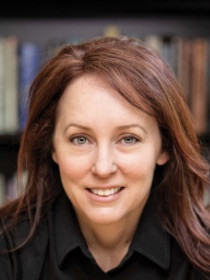
Anna Kirkland
Connect with Anna
About Anna
Kirkland is an interdisciplinary scholar of law and politics in the contemporary United States with a focus on rights claiming, health, and discrimination. She studies how ordinary people mobilize law and rights claims to make political claims about what they deserve and what harms to them should be officially recognized. Her research has explored topics such as whether weight discrimination in the workplace should be illegal and how claims to vaccine injury should be handled. She has offered testimony to the Massachusetts legislature in their consideration of a weight-based civil rights bill and submitted an expert witness brief in the Michigan same sex marriage case, DeBoer v. Snyder (2014), as well as advised the CDC and immunization advocacy groups about the activities of the anti-vaccine movement.
Contributions
Assessing the Effectiveness of the U.S. Vaccine Injury Compensation Court
In the News
Publications
Draws on an analysis of every vaccine-related bill introduced in all 50 states from 1998 to 2012 to argue that the anti-vaccine movement has not had a major legislative victory since 2003, though the movement mobilized effectively to block adverse legislation until 2011. Predicts the 2015 California legislation restricting philosophical exemptions to school vaccine requirements.
Explores how activists and government actors come to know, identify, and compensate for vaccine injuries, and what recent debates over vaccine safety reveal about democratic engagement with volatile scientific questions in the contemporary United States.
Criticizes wellness programs in employment for their moralism and potential as drivers of discrimination, especially on the basis of disability, pregnancy, or weight, in the context of the Affordable Care Act’s expansion of wellness incentives and punitive measures.
Analyzes the underlying ideologies, political commitments, and organizational histories of the most prominent groups advocating against vaccination and for the hypothesis that vaccines cause autism.
Describes the claims in our no-fault vaccine court that vaccine caused autism in several representative test cases, detailing exactly how the scientific basis for the claims failed.
Analyzes discrimination law by asking, what if we wanted to add weight to anti-discrimination laws? Argues that while weight discrimination is unfair, our anti-discrimination laws do not provide very robust grounds for protections because they are so individualized, difficult to use, and limited in scope.